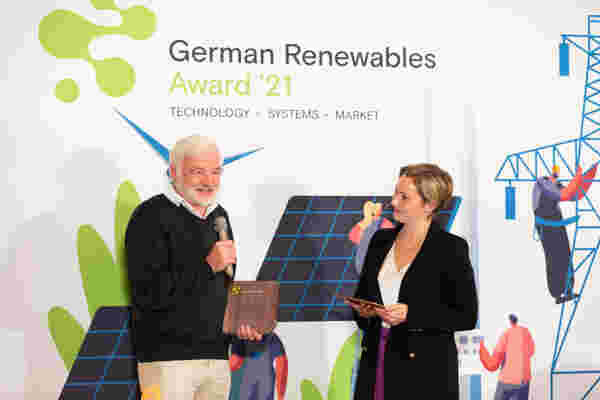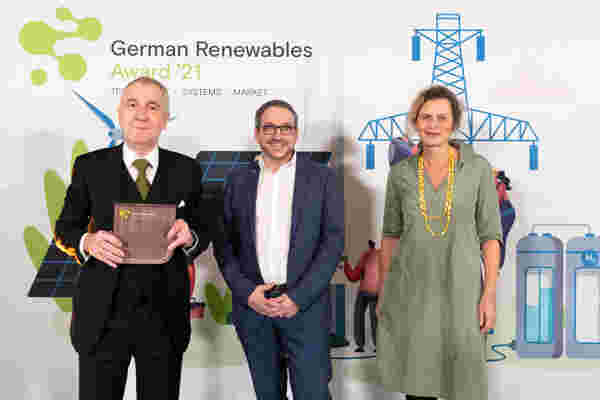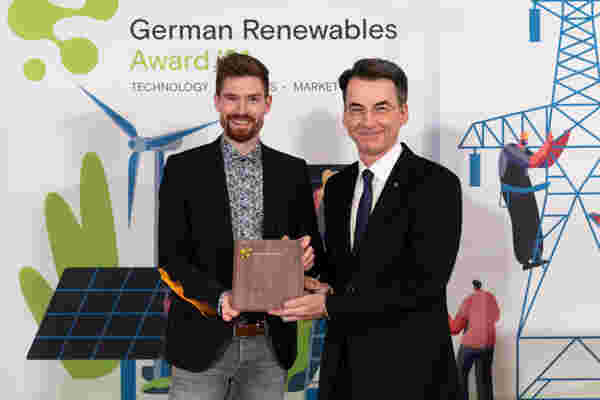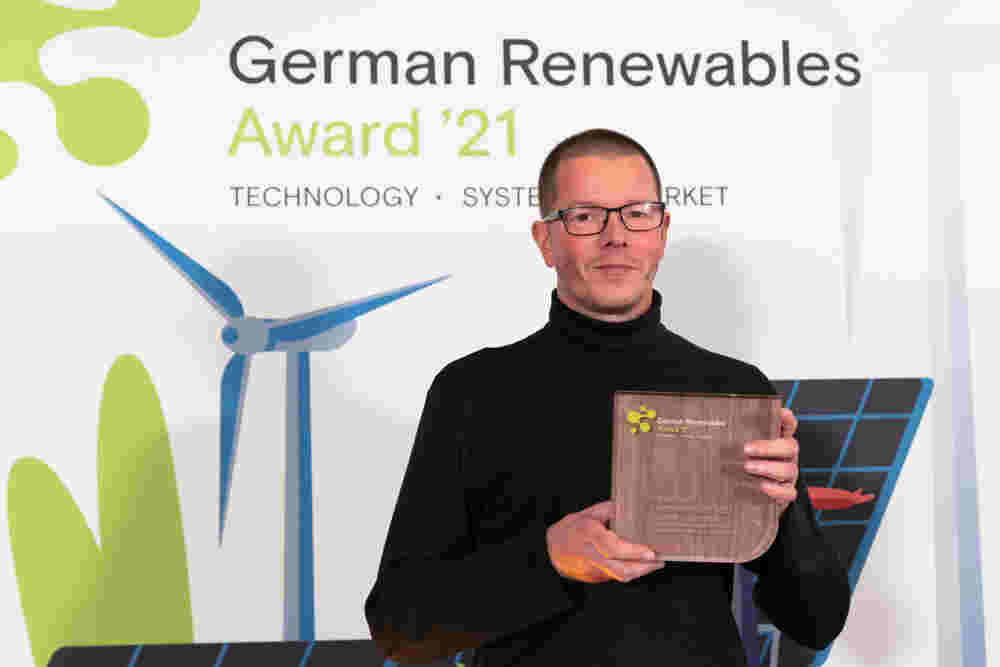
From record wind turbines to hydrogen innovations
EEHH Cluster Agency presented the German Renewables Award for the 10th time
Container for the scroll indicator
(Will be hidden in the published article)Watch the award ceremony in the livestream - recording
59 candidates in six categories – the German Renewables Award set new records with its anniversary event on 11 November 2021. For the tenth time, the expert judging panel, consisting of eight experts from the renewable energy sector, selected winners whose innovations and achievements are helping to drive the energy transition.
Product innovation of the year
The new Siemens Gamesa Renewable Energy SG 14-222 DD offshore wind turbine turns many small ideas into one big and innovative step forward and won the German Renewables Award in the ‘Product innovation of the year’ category. These include not only the record length of the rotor blades and the up to 15 MW output, but also the combination of innovations in production, high availability, digitalisation and the latest control technology. A single wind turbine supplies energy for 18,000 European households.
Project of the year
Stadtreinigung Hamburg’s winning project, “Extended Heat Utilisation Müllverwertung Borsigstraße”, in the “Project of the year” category uses the targeted cooling of flue gases to improve heat recovery. Depending on demand, the MVB will feed directly into the district heating network or make the generated steam available to the Hamburg-Tiefstack combined heat and power station. After completion of both construction phases, the total reduction in CO2 emissions will be 104,000 tonnes per year.
Hydrogen innovation of the year
The regional hydrogen hub built by the APEX Group in Rostock-Laage provides complex infrastructure, covering all technical aspects as well as the economic framework conditions for the future development and operation of corresponding hydrogen energy solutions. The jury acknowledged this achievement with the new German Renewables Award in the “Hydrogen innovation of the year” category.
Student thesis of the year
Jan Wiemer from Fraunhofer IEE and the University of Kassel won the award in the ‘Student thesis of the year’ category with his study on “Interactions between peak capping and overhead line monitoring in grid planning and grid operation management”. As part of his Master’s thesis, he developed a method that enabled the two optimisation measures to be combined for the first time, thereby proving that a larger wind farm capacity could be connected to a heavily utilised section of the electricity grid.
Project of the Year: Prof. Dr. Rüdiger Siechau, Kay Goetze, both: Stadtreinigung HH, Laudator Dr. Ursula Prall
Student work of the year: Jan Wiemer, University of Kassel, laudator Rüdiger Theophil
Journalist Award: Andreas Molitor, "brand eins




